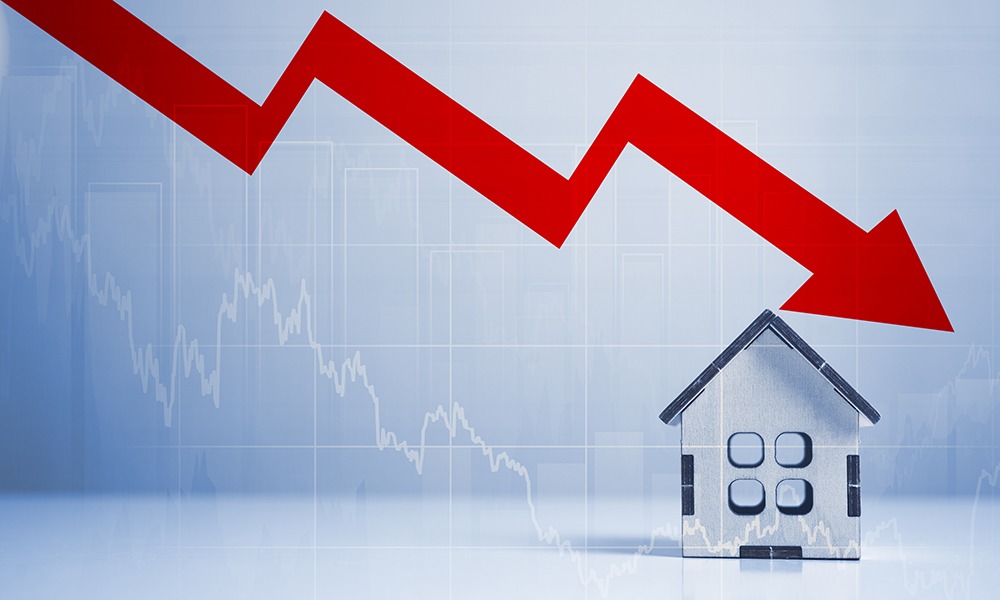What Happens to Real Estate During a Recession?
“Recession” is a scary word for investors and business professionals. It can spell economic uncertainty for many people and make selling your home much more complicated than usual. We all know that recessions affect banks and investments, but what happens to real estate during a recession?
The real estate industry isn’t one-dimensional. Multiple causes are often behind its ebbs and flows, dictating how successful home buyers and sellers will be. You’ll want to know how to understand the real estate market to stay on top and stand out from the crowd.
What Is a Recession?
Before jumping into how a recession may impact the real estate market, let’s briefly discuss recessions. Specifically, what is a recession? Understanding recessions will help you know what to expect and how to stay prepared as a real estate agent.
A recession is a prolonged period of declining economic activity. It can last anywhere from a couple of months to several years, leading to high unemployment rates and decreased spending due to increased costs. The National Bureau of Economic Research (NBER) tracks recessions to gather relevant critical data, which helps industry stakeholders strategize more effectively.
Recessions & Real Estate: How Does a Recession Affect the Market?
As a real estate agent, you’re probably aware that the industry isn’t as predictable as you would like. You know that recessions occur and can be bad for stocks, bonds, dollar values, and other traditional assets. But recessions also significantly impact alternative assets like real estate.
The real estate market isn’t immune to recessions and sees some noticeable changes when the economy starts to plummet. What happens to real estate during a recession depends on several factors.
Tighter Lender Requirements
When a country goes through extensive periods of economic instability, it causes many individuals to lose their jobs and earn less money (or borrow more). When less money goes around, the likelihood of you being able to pay off your mortgage and settle debts decreases. This puts lenders in a predicament.
During a recession, lenders typically make their requirements more stringent to protect themselves from borrowers who can’t pay up. For example, they may require a bigger down payment or higher annual income for buyers to qualify for a mortgage. Such restrictions make buying a house during a recession much more challenging and lead to increased closing costs.
How might tighter lender requirements affect you as a real estate agent? You may have difficulty closing on property deals. Despite your best efforts, a recession could leave your big sale dead in the water.
Less New Home Construction
Economic recessions often lead to fewer new home construction projects. You can see how this affects the real estate market. If construction companies aren’t building new homes, it means the following:
- Fewer people buying homes: Simply put, you can’t buy a home if you can’t find one. Fewer new homes mean fewer options for prospective buyers and fewer calls requesting your professional services.
- Fewer people looking to sell their homes: Homeowners and families typically won’t look to sell their homes until they find somewhere else to live. However, people aren’t likely to consider moving if they can’t find a new place. This means fewer sales opportunities for real estate agents.
Less Homebuying Competition
Nothing gets the economic ball rolling like a bit of competition. When investors are wheeling and dealing to make the largest profit margins, it helps circulate money and stabilize the economy. The same is true for the real estate industry.
Unfortunately, what happens to real estate during a recession is it lacks competition. People don’t trust the market and aren’t looking to buy or sell property like before. This means your steady stream of customers will likely turn into more of a slow drip.
Recessions & Real Estate: Factors That Contribute to Market Impact
A recession impacts real estate in various ways, and many factors contribute to its overall effect. You might not feel the weight of all these at once, but there is often a substantial overlap. You may see more significant impacts as an economic recession continues.
Decreasing Mortgage Rates
Mortgage rates may decrease dramatically as a result of an economic recession. This often happens when the Federal Reserve tries to stimulate economic activity. Lowering mortgage and interest rates is a great way to encourage people to buy and sell.
Declining Property Values
Home value is one of the most prominent contributing factors to a recession’s impact on real estate. As time goes on and economic inactivity continues, property values generally decline and make expensive houses worth much less. This could mean wealthier people might be more apt to buy, but it also means they will be less likely to sell.
Why do property values decline during a recession? The answer usually lies in the principle of supply and demand. Because people spend less during poor economic times, the supply of vacant homes increases. It makes the supply greater than the demand, consequently lowering property prices.
Location-based Factors
Location is another factor to consider during a recession. Recessions can affect different regions in various ways, raising values in one area while lowering them in another. You will likely notice this when looking at urban versus rural properties.
Recessions typically hit urban districts much harder than rural locations, resulting in more significant drops in metropolitan home values. On the flip side, rural property values stay relatively consistent. Homeowners and renters in the city may look to move out of town during a recession, which increases the demand for rural homes and increases their value.
Get Free Resources for Real Estate Agents
At Local Leader®, we have the free digital resources every real estate agent needs to succeed in the industry and achieve long-term success. We provide expert guidance so you can understand what happens to real estate during a recession, learn how to break into the luxury real estate market, and much more. Subscribe to our newsletter to stay informed, and start boosting your business today!


